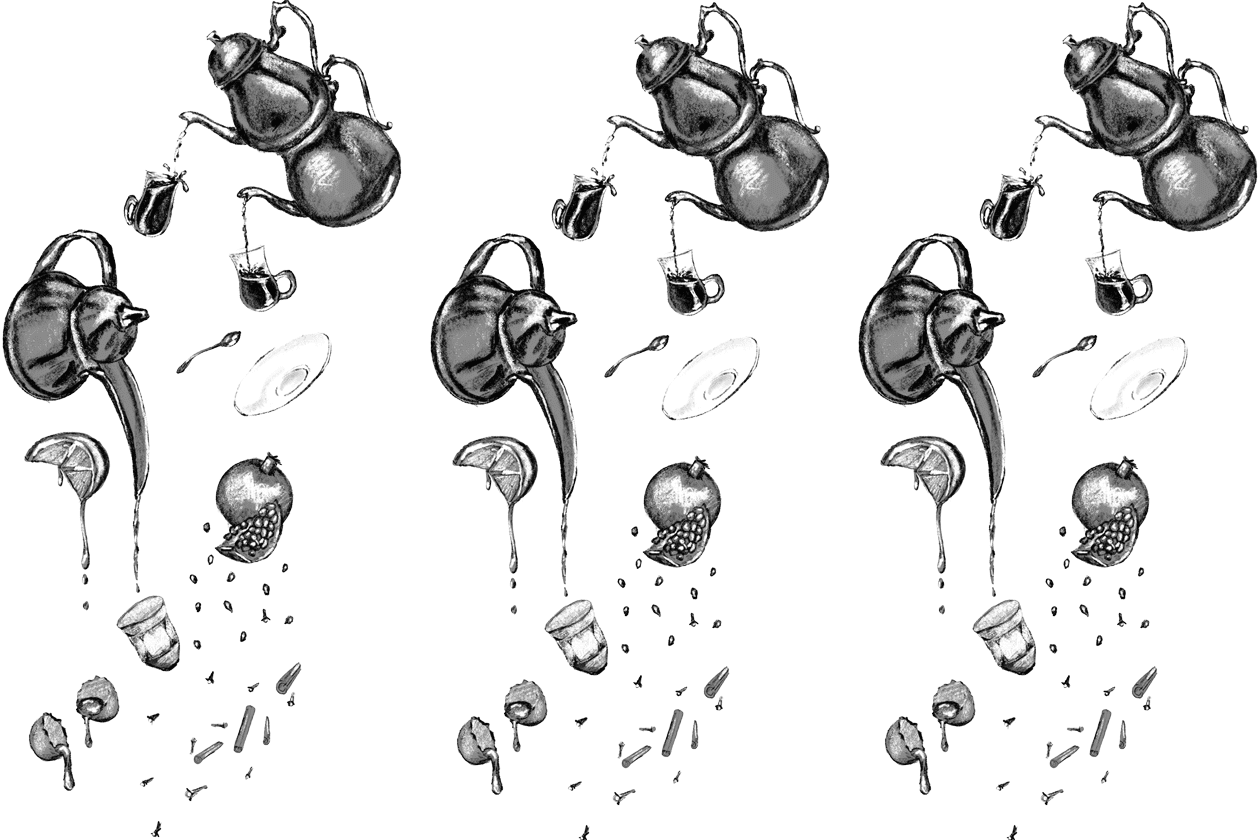The word ‘Lebanon’ has always tasted like zaatar and charred sesame seeds.
For many, the aromas and colours of Lebanon bring to mind a Halal snack pack, or carrot sticks dipped in hummus. But for millions, the oregano stems and cedar trees are an expression of love. A steadfast vessel of culture, family and connection.
For me, it’s the link to my grandfather, to my Dad’s wartorn hometown and to my tentative cultural identity. Honouring Lebanon through food and culture is one of the languages my family uses when words fail us.
My memories of my family and cultural identity always simmer down to a sense of synaesthesia.
Sight:
Cedar City has some of the finest Phonecian fabrics, Arabian textiles and cultural connections. The walls of our home are lined with vibrant embroidery of satin or velvet, paired with picture frames of weathered scenes of our hometown. Shrouding these walls are the unmistakable Kilim rugs with their elaborate patterns, framed by deep colours of mahogany, golden hues and dark greens.
Rooms of these colours meet with visions of my Jidou. He kneels at 86, chopping onions, slicing eggplants and placing them in faded bowls where vines dance vines along the rims.
Hearing:
I recall school drop-offs to the sound of folk heroes: Fairuz, Oum Kalthoun and Marcel Khalife. Throughout my childhood, Dad would pause the songs, line by line, to recite the translation:
Oh I wish for love to bring us together
Because passion plants us but distance harvests us
— Excerpt from ‘Balleghouhou Ya Qamarou’ by Fairuz
This beauty seeps further. For our weddings, engagements and celebrations, the percussions of tabla and darbuka boom their melodies down streets. We line dance to the Dabke, swinging our held hands to the oscillating tones of the drum.
Often, I remember that though I enjoy the beauty of folk singers and ceremonial treats, my father walked hundreds of kilometres out of his hometown, marching to the beats of bombs and artillery just 43 years ago.
Smell:
Rosewater, agarwood and jasmine follow my aunties, as they kiss my cheeks three times and assure me I need a second serving of mujadra. Cumin, sumac and seven spices are soaked into our kitchens, and loyally seep into our furniture. I can never enter a family member’s home without wafts of broiling saffron or fresh Arabic coffee piping on the serving tables.
When I think of family, I think of my grandfather, and the hospital room where we parted ways. This clean, metallic scent is always present: it taps on the shoulder of the memories of our meals.
Taste:
I hold no hesitation when I say this: I am a descendant of the richest cuisine in the world.
The falafel, the malfouf, the tabouli, the fatayer, the kibbeh, the baba ghanoush, the shakshouka,, the fooul: this ephemeral taste is only a snapshot of the dishes of my people.
On the news, we see devastation and civil unrest on our glorious lands. On plates and weathered bowls, we see infused rice and mahmool biscuits. On the stove, we see the mujadra or the vine leaves, coupled with pickled chillies and radish ready for any guest to taste.
My grandfather spent hours labouring over these dishes, and he would proudly offer them to his children and grandchildren and great-grandchildren. When the wounds seem irreparable, the food of my family has always been a generational plaster.
Touch:
To end this foray, I could share an authentic, but depthless, sentiment of gratitude for the experiences I have undergone. But my cultural identity is far more complex than I will ever realise, and at times I’ve failed to practise the honesty I so fondly honour.
I used to hate the way my name required two or more encores. I used to hate the interrogation of the foreign foods in my thermos. I used to hate learning about my culture with sour tongues in front of blurry whiteboards. I used to hate the excessive hair I grew all over my body. I used to hate the generalisations. I used to hate that I hated these things at all.
Yet through this, I owe my existence to my Jidou and the wars he fought. I owe my spirit to my Father and the walls he continues to knock down. I owe my identity to the foods and the family and the pain and the drums and the love and the oregano stems and the charred sesame seeds.
I am touched by my culture. I am misshapen by my culture. I am transformed by my culture.
Lebanon tastes like liberation. And until we all taste it, my culture will never be muted.





